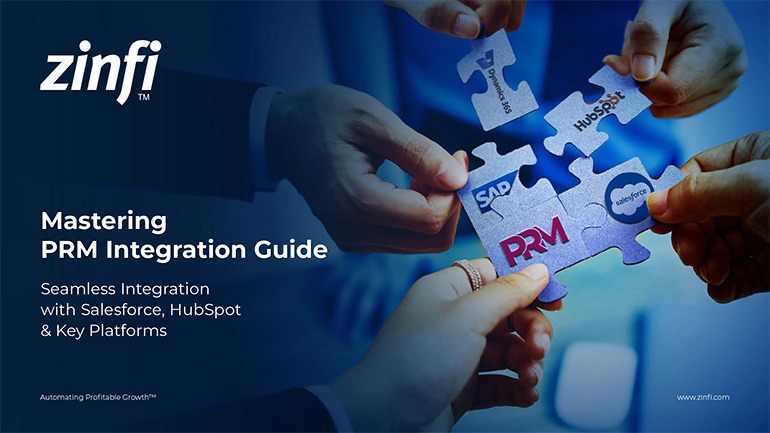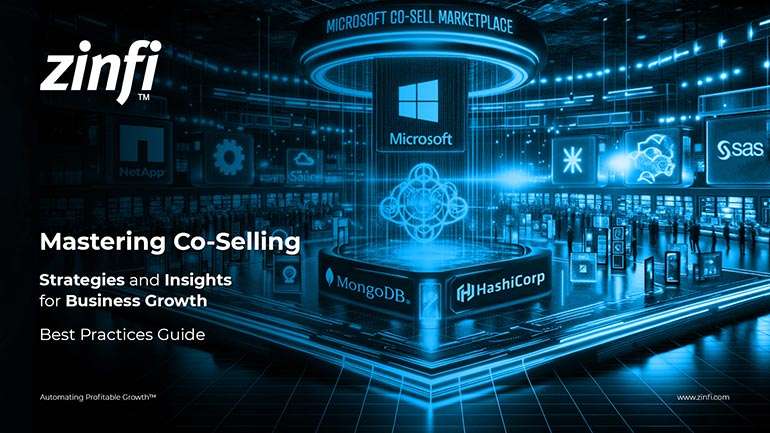Best Practices Articles

Why a Channel Sales Manager Can Make or Break a Channel
One of the most important roles in an organization selling through the channel is the role of a channel sales manager. Why? It’s simple: This is where rubber meets the road. It doesn’t matter which programs, processes or automation platform are in place. Partners don’t just do business with a company; they also do business with the people who represent the company.
Over the years, I have seen channel programs crash and burn due to a lack of competency, goal alignment and execution passion on the part of channel sales managers. On the other hand, I have also seen how successful channel sales managers live and work, and I have seen the principles they must embrace in order to drive transformation within the constraints imposed by the organization.
The role of a channel sales manager tends to considerably vary from one organization to another, and those differences are often based on the industry the organization serves. However, there are a few core principles that are essential for the success of a channel sales manager in just about any industry. I see these principles emerge repeatedly across some of the best clients we work with globally. Here is a brief summary:
- Long-term focus drives short-term results. I had a boss who used to say you will earn a lot more if you can walk and chew gum at the same time. I consistently see that the channel sales managers who can take a longer term, 12-to-18-month approach in developing and driving channel sales tend to outshine those who try to get there by a “hook or a crook” approach. It is quite logical, right? The channel is like the Titanic. If you don’t know where you’re going, chances are you going to hit an iceberg — and miss your numbers big. When a channel sales manager carefully plans partner recruitment, training and engagement activities by leveraging the organization’s existing programs, this can positively impact both short- and long-term numbers. Instead allowing a barrage of emails and phone calls from partner base drive all of your activities, the best thing to do is to carve out 20% to 25% of your time to plan out what the next 12 months should look like. This can only be done with proper data and analytics, though—a topic for a separate discussion. The takeaway here is that a longer-term approach is critical for channel sales managers who want to overcome the constant fires that tend to dominate their workday.
- Data should drive prioritization, not what’s hot today. Even though most organizations generate tons of data, very few channel organizations drive channel strategy and execution based on that data. There are a lot of anecdotal opinions and traditional tactical activities that can keep a channel sales manager busy and distracted. As you plan your long-term approach, the most important short-term activity you can engage in is figuring out who your most productive partners are and why they are successful. You must learn this based on data—not based on who you think you have a great relationship with. While relationship is the core foundation on which a thriving channel is built, data must determine the execution pillars you erect on that foundation. You may be amazed to see how your existing finance or logistics or other support organizations can help you discover what makes your partners successful. That topic requires a whole other article on its own. But I consistently see successful channel sales managers who reach out to various data pockets and data owners in their organization and in doing so very quickly (in 3 to 6 months) figure out what makes their territory work. If your organization is not providing you with such data, you must go and get it. And you can, because in the end you are the one who is driving the channel—no one else. Don’t be afraid to say so when you face pushback after requesting data.
- Relationship is more important than results. Most people in performance-driven organizations forget this simple idea. In the channel, partners sell not just because they are dependent on the business proposition the vendor provides, but also because they have been treated well by the partner during a moment of crisis. For example: If you promise something to a partner, you must. It is better to say “no” if you think you or your organization cannot deliver than to close a deal and then fail to come through. Yes, deals that require cross-functional support carry more risk because your reputation is riding on others, but in that case be transparent with your partner base. You must protect your relationship. It sounds selfish, but you do not need to fall on the sword if your organization fails to deliver. In the end it is your reputation that is at stake and comes first—even before your organization. Above all, be transparent. If manufacturing or product management or product marketing or whoever is not coming through, share that with the partner. The partner can help you escalate your concerns to a higher level. You shouldn’t be a flame thrower, but you also shouldn’t sit on the sideline when it comes to making a partner successful. Success in the long term is NOT always about revenue, even though in the end you will get measured by it. We will discuss this in detail in a separate article.
- Reach is more important than perfection. When you are driving your numbers up, you will always have less time than you would like. While it is very important to get the core offerings (product pricing, training detailed, support logistics, etc.) right, don’t wait for the perfect program to come together. Reach out to your partners. If something is missing tell them what is missing. Be transparent, and leverage your relationships in an honest and transparent way. Partners do business with many companies, but very few companies are open, so they will appreciate the details you share with them. While you should never share something confidential (e.g., acquisition of another company or an upcoming reduction in force) until it is public, you can absolutely share with a partner why something is late and what the plans are to get things back on track. In those cases, you should make sure what you are sharing is correct. Insist that your internal stakeholders give you details so that you can reach out and inform your partners where a specific program, product or process is actually going. Don’t go dark on your partners—out of sight is truly out of mind. Manage outreach effectively and consistently, and leverage the facts.
- Nothing can replace integrity. Last but not least, the channel is fully of siren calls that you need to avoid at all costs. Do not meet your numbers by stuffing your channel, even if your job may be at stake. Once you cross that line, there is no going back. Do not make promises to partners that you know you can’t fulfill. I see broken promises every day. Relationships are always 10 times more important than fake results. It takes years to build trust, but one incident to lose it. In today’s fast world of bits and bytes, it’s easy to forget that the role of channel sales manager is not just to promote sales, but also to be the vanguard of principles that define the true nature of an ethical relationship. If this sounds too pedagogical, so be it. Too many rules are bent when it comes to channel sales.
Best Practices Guidebook
 The Ultimate Guide to Partner Marketing Success Best Practices
The Ultimate Guide to Partner Marketing Success Best PracticesDownload Guide
 How to Start and Scale Partner Ecosystems Best Practices
How to Start and Scale Partner Ecosystems Best PracticesDownload Guide
 The Evolution of PartnerOps: Past, Present & Future Best Practices
The Evolution of PartnerOps: Past, Present & Future Best PracticesDownload Guide
 Mastering Channel Sales: Strategies, Best Practices, and Growth Tactics for 2025
Mastering Channel Sales: Strategies, Best Practices, and Growth Tactics for 2025Download Guide
 Winning with Partner Advisory Councils: Best Practices for Partner Engagement & Growth
Winning with Partner Advisory Councils: Best Practices for Partner Engagement & GrowthDownload Guide
 The Future of Partner Ecosystems Best Practices
The Future of Partner Ecosystems Best PracticesDownload Guide
 The AI Revolution: How Technology and Talent are Shaping the Future
The AI Revolution: How Technology and Talent are Shaping the FutureDownload Guide
 Top 105 Partner Management Metrics that Matter Best Practices
Top 105 Partner Management Metrics that Matter Best PracticesDownload Guide
 Mastering PRM Integration Best Practices
Mastering PRM Integration Best PracticesDownload Guide
 Building a Sales Partner Portal with Salesforce Best Practices
Building a Sales Partner Portal with Salesforce Best PracticesDownload Guide
 Building and Managing Partner Ecosystems Best Practices
Building and Managing Partner Ecosystems Best PracticesDownload Guide
 Mastering Co-Marketing and Co-Selling Best Practices
Mastering Co-Marketing and Co-Selling Best PracticesDownload Guide
 Transforming Partner Ecosystems Best Practices
Transforming Partner Ecosystems Best PracticesDownload Guide
 Mastering Partner Ecosystems Best Practices
Mastering Partner Ecosystems Best PracticesDownload Guide
 Mastering Partner Onboarding Best Practices
Mastering Partner Onboarding Best PracticesDownload Guide
 Partner Ecosystem Management Best Practices
Partner Ecosystem Management Best PracticesDownload Guide
 B2B Marketing in the Age of Intelligence Best Practices
B2B Marketing in the Age of Intelligence Best PracticesDownload Guide
 Multi-Partner Co-Selling Best Practices
Multi-Partner Co-Selling Best PracticesDownload Guide







